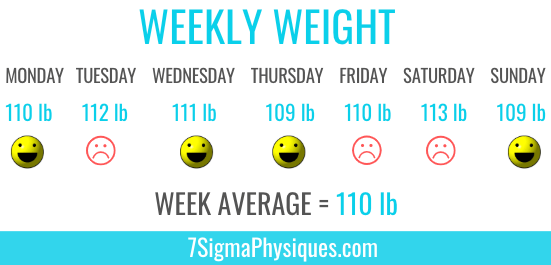Overeating is one of the biggest struggles people wanting to lose weight have.
Breaking bad eating habits can definitely take some time and hard work, but it is essential for those looking for long-term success to work on them.
In order to lose weight and keep it off, you must create healthy eating habits, blindly following a restrictive diet might be okay for a few weeks, but after the diet is over, you risk jumping back to your old eating habits.
It’s important that you learn the basics of nutrition and adopt an approach that fits your personality, schedule, metabolism, likes, and dislikes.
Here’s what we’ll cover in this article:
Table of Contents
7 Effective Tips to Stop Overeating.
1. Eat Well-Balanced and Nutritious Meals
Portioning your meals with a good balance of carbs, veggies, fats, and protein (macronutrients) will ensure that you get enough of the nutrients you need.
It will also help you keep your energy levels stable throughout the day instead of causing your blood sugar to spike and then leave you sluggish and tired.
A well-balanced meal will also take longer to digest, which will keep you full for longer, reducing the chances of overeating.
If you want to find how much you should be eating, you can check out my article on how to calculate your macros and TDEE.
2. Eat Bigger But Fewer Meals Instead of Smaller But More Frequent Meals
Constantly eating smaller meals (or snacking) will make you feel satisfied for a few minutes, but you will never reach a state of fullness.
By eating every 2 hours, for example, you’re training your body to be hungry every 2 hours. Your body and hunger hormones adapt to your eating patterns.
That’s why it’s often difficult to change your eating schedule, but once your body gets used to it, you’ll be okay.
Start your journey to losing 10-21 pounds in just 21 days.
Get the free 21-Day Fat Loss Challenge training guide!

3. Get Enough Sleep
People talk a lot about the importance of sleep, yet they still don’t apply it.
Lack of sleep affects your hunger hormones, making hunger a little more difficult to manage.
A few studies (1, 2, 3) show that not getting enough sleep may be associated with obesity and depression.
So consider sleeping between 6 to 8 hours each day and developing an effective night-time routine.
4. Drink Water Before Each Meal
A great way to stop overeating is to drink water before each meal.
There are many actions in your body that serve as signals of fullness, the expansion of your stomach is one of them.
Drinking water will make the stomach stretch and send signals of fullness.
This study (4) showed that dieters who drank water before their meals lost 44% more weight than those who didn’t have anything to drink before their meals.
So try to drink a glass of water before enjoying your delicious meal.
Here’s a more in-depth article on how drinking water can help you lose weight.
5. Wait a Few Minutes Before Going for Seconds
It takes between 20 to 30 minutes for your stomach to signal your brain that it’s full.
So don’t panic and rush to get more food as soon as you finish eating.
Instead, consider eating slowly and enjoying more of your food before going back for seconds.
6. Add More Fiber
Another common way to stop overeating is eating more high-fiber foods.
Fiber is a very important nutrient needed to maintain a healthy digestive system and better absorb the nutrients in foods.
It’s also digested very slowly, which will keep you full for longer.
Some foods high in fiber are vegetables, fruits, and legumes.
7. Avoid Having Snacks in Your House
“If you don’t buy it, you don’t eat it.”
It’s often easier to overeat when things are easily available to us.
You can prevent overeating by simply adding more friction between you and the snacks.
This is very effective because sometimes we eat because we’re bored and not necessarily hungry.
Plus, it can also be helpful if you’re trying to lose weight on a budget.
Another pro-tip is to never go grocery shopping on an empty stomach, very bad idea!
If you absolutely need to have snacks, try going for some low-carb snacks instead of sugary ones.
Stress and Overeating
It’s very common for us to reach for food when feeling stressed about work, family, or other obligations.
Unfortunately, this habit can make us overeat and ultimately gain weight, which can lead to feelings of depression and more stress.
If we don’t learn to manage stress eating, it can become a negative cycle.
Why Does Stress Make Us Hungry?
Eating isn’t only physical, but also psychological.
During stress eating, you eat food for reasons other than to curb hunger.
During stress eating, you eat to satisfy your appetite or cravings for a certain food because you believe it’ll provide emotional relief.
Increase in Cortisol Levels
Stressful situations make your body release a hormone called cortisol, which can increase your appetite and cravings for “unhealthy” foods.
Stress can be one of the alarming reasons you’re always hungry.
Luckily, there are a few things you can do to make your way out of the stress eating cycle.
6 Ways to Stop Stress Eating
1. Find Your Triggers
Since we’re all different, you must work on identifying the circumstances and emotions that cause you to reach for food outside of hunger.
Once you find your triggers, you can develop a plan to avoid them or prepare for them.
A good idea is to have a “replacement” activity for when cravings come, don’t just sit and try to push through it.
By not taking action, you’re constantly thinking about your cravings, so instead, go for a little walk or drive to clear your head.
2. Exercise to Reduce Stress

Studies (1) have shown that people who are in shape tend to better handle the effects of stress.
This is because exercise produces chemical changes in the brain that reduce stress.
I know that for some, stress is the reason why they don’t feel like exercising. However, it’s important for the future you that you work on breaking this habit.
Just like you entered a habit of drifting in depression and stress, you can enter a habit of health and wellness.
3. Meditate
Many people underestimate the power of being alone with their minds, they’re often impatient and need to stay busy.
However, meditation helps calm the mind and slow your heart rate and breathing.
When you’re calmed and focused, you can also concentrate more and therefore make healthier food choices.
So consider setting up a specific time each day to meditate, you can use apps like Headspace and Unplug to help you out.
This could be part of your morning routine for weight loss.
4. Talk to Your Friends and Family
Another great way to stop stress eating is to talk to your friends and family.
If you’re a habitual stress eater, consider asking a really good friend or family member to help you out.
Be honest and open about what you’re going through and how you’d like them to help you.
A good way they can help is by being open to letting you call them whenever you feel stressed.
During the call, they can remind you about your nutrition goals and motivate you with positive talk, and you can talk out your feelings and decompress.
5. Practice Deep Breathing

When you feel like a stressful situation is taking the best out of you, stop and breathe deeply for a few minutes.
You’ll want to breathe in through your stomach, not your chest, let it fill up, hold it for a few seconds, release, and repeat for a few minutes.
This will improve oxygen flow in your body, relax your muscles, keep your mind off the stress, and lower your cortisol levels.
6. Eat More Nutrient-Dense Foods
Mixing physical and psychological hunger is something to be aware of. When this happens, you’re not only eating for fullness, but for comfort as well.
This can be dangerous because comfort foods are often fatty and sugary, high-calorie, and not filling at all, which is why it’s easier to overeat them.
To reduce your chances of overeating, you may want to plan more nutrient-dense meals.
Consider having at least 1 serving of green vegetables and at least 20 grams of protein at each meal.
Also, consider eating nutrient-dense carbohydrates, such as sweet potatoes, quinoa, beans, legumes, whole grains, and fruits.
How to Avoid Feeling Stressed by Weight Loss
I remember a night when I was traveling from New York back to Florida, I was so focused on losing weight that I would prep my meals and carry them with me all the time.
That night, my flight was scheduled to leave at around 9:00 pm but it got delayed a few minutes, which wasn’t a big deal so I sat and waited.
A few minutes later, the time of departure was updated, and it was now delayed a couple of hours.
I had already eaten all of my prepped meals and was starting to get a little hungry, but I thought 2 hours wasn’t too bad and I could push through hunger so I didn’t break my diet.
A few minutes later, the time of departure was updated again, and my flight was now scheduled to leave at 2:00 am!
At this point, I was hungry and stressed out, I had been so good on my diet I didn’t want to buy anything to eat at the airport. Besides, at midnight there aren’t really many good food options.
I was so hungry I ended up eating a pizza pretzel and felt so guilty, depressed, and mad about it. I thought all of my hard work and progress was ruined.
Want to know what happened to my progress?
Nothing, that pretzel pizza didn’t ruin any of it, but my attitude and mindset ruined my mood for the rest of the night.
We need to remember that things will not always go as planned, and we shouldn’t stress about things we cannot control, but instead focus on the things we can.
Weight loss isn’t only about eating the right foods and exercising, but also about your mindset.
The key here is to differentiate between the things you can and you can’t control, and focus only on the ones you can.
Things You Cannot Control
1. Daily Weight Fluctuations
While weighing yourself daily is a great way to keep track of your progress, you shouldn’t stress out if you wake up a little heavier some days.
A lot of things, such as sodium, meal timing, stress, inflammation, and your time of the month, can affect your weight.
That’s why you often wake up 3-5 pounds heavier after going out to eat. Restaurants tend to use a lot of salt in their meals, which can cause water retention.
Therefore, what I recommend is that you focus on your weekly average instead of your daily fluctuations.
As long as your overall trend is going down, it doesn’t matter if some days you weigh in a little more.

2. Sickness and Injury
Getting sick is, for the most part, out of your control.
So if you’ve been on a workout streak and get sick, don’t stress about it. Instead, just take a break a let your body rest and recover.
To be honest, one or two weeks away from the gym or exercising won’t really affect your progress.
Nutrition is the most important thing when it comes to losing weight, so you can definitely keep dropping those pounds without exercising.
3. The Weather
Just like getting sick, the weather can be somewhat unexpected.
If the weather isn’t letting you go to the gym you can always find some at-home workouts to keep you active, or, as I said before, just take the day off and recharge.
4. How Fast You’re Losing Weight
In a perfect world, we would all lose weight fast and be happy. Unfortunately, this isn’t how weight loss works.
It might take you 3 months to lose the same amount of weight your friend lost in 1 month.
But that’s okay, we are all different, have different lifestyle, genetics, metabolisms, schedules, and things going on in our lives.
That’s why it’s important that you learn to enjoy the process instead of focusing and being happy only when you reach your end goal.
5. What Other People Say About You
People don’t know what you’ve been through, your goals, or your struggles, so don’t pay attention to their negativity.
Another thing I want to point out is that sometimes people aren’t really saying anything bad about us. We can sometimes be the ones making negative assumptions in our minds.
Things You Can Control
1. Making Healthy Food Choices
Even if you’re sick and have to skip the gym, you can almost always make healthy food choices.
Same when you go out to eat with friends or family. You can control what goes in your mouth.
You can check out these tips to keep your calories low when eating out.
2. Going To The Gym or Skipping It
You can decide whether you want to keep watching TV or get up and go do some exercise to improve your wellbeing.
If you’re having a hard time getting motivated to lose weight, you can check out these 5 tips.
3. How Much Time You Spend on Your Phone
This is often one of the reasons many of us don’t get enough sleep.
We can be scrolling through Pinterest, Facebook, or Instagram for hours without even realizing it, when suddenly, the day is gone and we cannot go exercise.
4. Being Grateful
If you’re reading this right now, chances are you’re doing better than a lot of people.
Be grateful for the opportunities you have.
I hope you loved this article on how to avoid feeling stressed by weight loss!
Have any other tips to stop overeating? Let me know in the comment section below!
I hope you loved these tips to stop overeating!
If you’re ready to start your weight loss journey, Avocadu’s 21-Day Fat Loss Challenge is the place to start!
This plan helps men and women lose 10-21 pounds in just 21 days and can be repeated as many times as you want.




